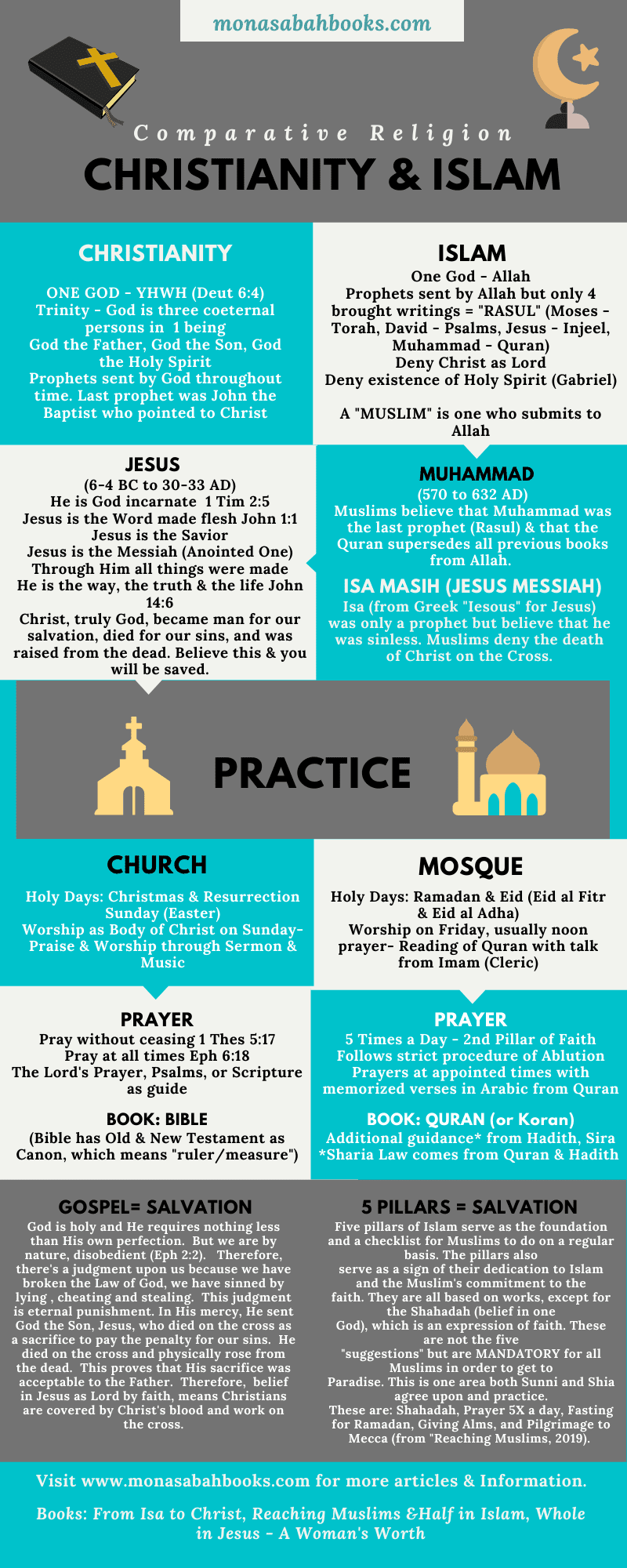This article explores ten major differences between Christianity and Islam, two of the world’s largest religions. These differences include beliefs about God, Jesus, sacred texts, prayer, religious holidays, alcohol consumption, women’s rights, afterlife, tolerance of other religions, and authority. While both religions share some similarities, their differences can lead to tension. Nevertheless, both Christianity and Islam share the goal of seeking a deeper understanding of God and living righteous lives.
10 Differences Between Christianity and Islam
Christianity and Islam are two of the largest religions in the world. Both of these religions share some similarities, but they also differ significantly in their beliefs and practices. This article will examine ten major differences between the two religions.
1. Beliefs About God
One of the most significant differences between Christianity and Islam is their beliefs about God. Christians believe in one God who exists in three persons, which is known as the Trinity. In contrast, Muslims reject the Trinity and believe in one God.
2. Beliefs About Jesus
Christianity teaches that Jesus is the Son of God and that he died on the cross for the forgiveness of sins. Islam, on the other hand, regards Jesus as a prophet and a messenger of God but does not believe that he is the Son of God.
3. Sacred Texts
The Bible is the sacred text of Christianity and contains the Old and New Testaments. In contrast, the Quran is the holy book of Islam and is the final revelation from God to mankind.
4. Prayer
Christianity and Islam have different prayer practices. Christians offer prayers privately and in churches, whereas Muslims offer prayers publicly in mosques.
5. Religious Holidays
There are many religious holidays in both Christianity and Islam, but they differ in their significance and observances. Christmas, Easter, and Good Friday are the most important holidays for Christians, while Muslims celebrate Eid al-Fitr and Eid al-Adha.
6. Alcohol Consumption
Christianity permits the consumption of alcohol in moderation, while Islam forbids it altogether.
7. Women’s Rights
Christianity and Islam have different views on women’s rights. Christianity teaches that men and women are equal in the eyes of God, but Islam gives men a higher status than women.
8. Afterlife
Both Christianity and Islam believe in an afterlife, but they differ in their beliefs about what happens after death. Christians believe in heaven and hell, while Muslims believe in paradise and hell.
9. Tolerance of Other Religions
Christianity and Islam have different attitudes towards other religions. Christianity promotes tolerance of other faiths, whereas Islam believes that it is the only true religion.
10. Authority
Christianity is led by a hierarchical structure of priests, bishops, and the Pope, who have the ultimate authority. In contrast, Islam has no centralized hierarchy, and religious authority is divided among various scholars and leaders.
In conclusion, Christianity and Islam have many differences in their beliefs and practices. Although these differences can create tensions between the two religions, it is important to remember that both religions share the common goal of seeking a deeper understanding of God and living righteous lives.
